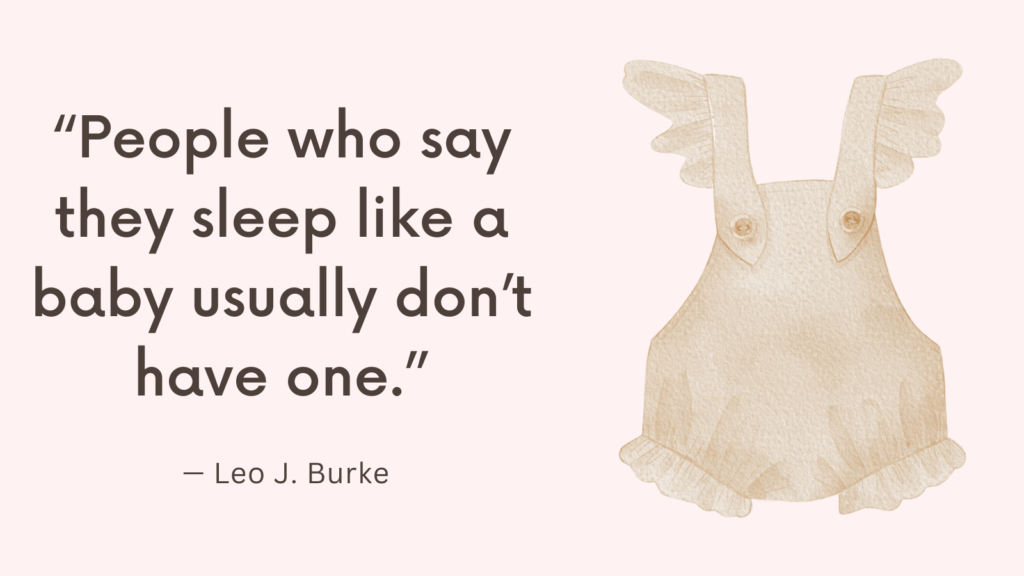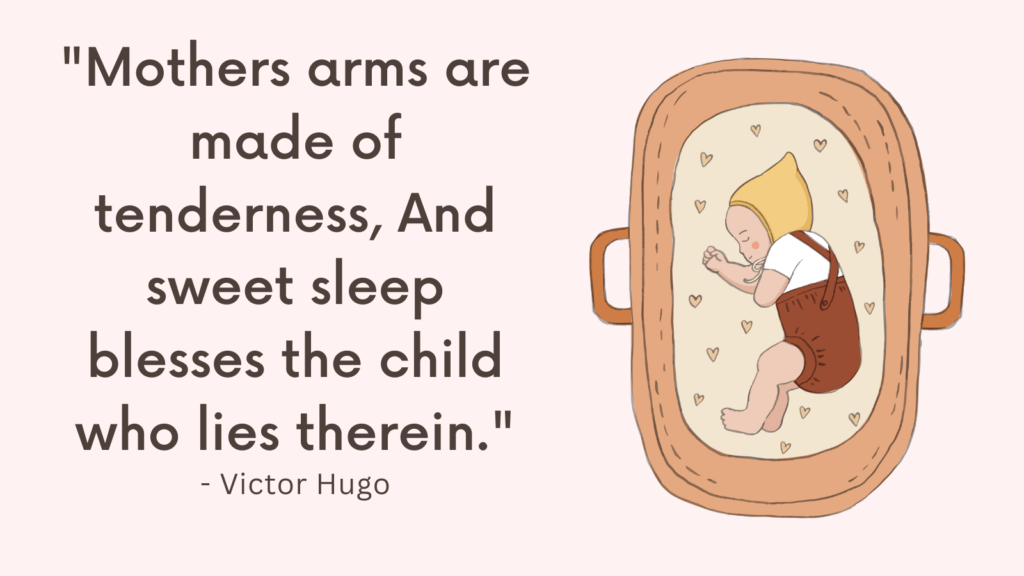In this post, you’ll find out why your baby is chewing on his tongue and what you can do about it.
5 Reasons Your Baby Is Chewing on Tongue
When a baby chews on their tongue, it can be a common behavior that may have various underlying reasons.
Here are a few potential explanations. However, please note that a thorough assessment by a healthcare professional would be necessary to determine the precise cause in your specific situation.
1. Oral exploration
Babies often explore the world around them through their mouths.
Chewing on the tongue might simply be a part of their natural developmental process as they explore different sensations and textures.
2. Teething
Chewing on objects, including the tongue, is a common sign of teething.
The pressure from chewing can help soothe the discomfort that babies may experience when their teeth start to emerge.
Related: How to Deal with Baby Chewing on Crib? Top 6 Tips
3. Self-soothing
Babies may chew on their tongues as a way to self-soothe.
It can provide them with a sense of comfort and a distraction from any unpleasant feelings or emotions they may be experiencing.
4. Oral motor development
Chewing motions can be a part of a baby’s oral motor development.
This behavior might indicate that they are practicing their chewing skills, preparing for the introduction of solid foods.
5. Sensory stimulation
Chewing on the tongue can also serve as a form of sensory stimulation for babies.
The pressure exerted on their tongue can provide them with sensory feedback, which some babies find enjoyable or calming.
Related: How to Deal with Baby Scratching Face? Top 8 Tips
Top 10 Tips for Managing Baby’s Chewing on Tongue
Here are some tips and strategies that may help in managing your baby’s chewing on the tongue behavior:
1. Provide appropriate teething aids
Having suitable teething toys or chilled textured objects can redirect your baby’s chewing behavior from their tongue.
These aids can provide relief and comfort during teething periods.
Make sure to choose toys made of safe materials specifically designed for this purpose.
2. Offer alternative objects
If you notice your baby frequently chewing on their tongue, provide them with safe and appropriate objects to chew on instead.
This can include rubber teething rings, silicone teethers, or soft cloth toys.
Offering these alternatives can help divert their attention and satisfy their need for oral stimulation.
Related: How To Sleep Train For Naps?
3. Cold compresses
Chilling a clean washcloth or using a cold teething toy can provide relief for sore gums.
The cool sensation can help soothe discomfort and reduce the desire to chew on the tongue.
4. Gentle gum massage
Using clean fingers or a soft cloth, gently massaging your baby’s gums can alleviate teething pain and reduce the urge to chew on their tongue.
Make sure to do this with clean hands to maintain hygiene.
5. Distraction techniques
Engaging your baby in fun and stimulating activities can divert their attention from chewing on their tongue.
Singing, playing music, reading books, or offering other age-appropriate toys and games can help shift their focus and reduce the likelihood of tongue chewing.
Related: Best 10 Sleep Training Books
6. Positive reinforcement
Reinforce positive behavior by praising and rewarding your baby when they use teething toys or engage in other appropriate forms of oral exploration.
Positive reinforcement can encourage them to continue these behaviors and discourage tongue chewing.
7. Monitor and observe patterns
Pay attention to any specific patterns related to your baby’s tongue chewing behavior.
Note if it occurs primarily during certain times of the day, in specific situations, or in response to particular stimuli.
Understanding the triggers can help identify effective strategies for managing the behavior.
Related: Top +200 Stuffed Animal Names
8. Maintain a calming environment
Create a soothing and calm environment for your baby, especially during teething periods.
Reducing noise levels, providing soft lighting, and offering gentle music can help create a relaxing atmosphere, potentially reducing the need for self-soothing through tongue chewing.
9. Maintain good oral hygiene
Ensure that you keep your baby’s mouth clean and healthy.
Gently clean their gums with a soft, damp cloth after feedings, and once teeth start erupting, introduce appropriate toothbrushes and fluoride-free toothpaste as recommended by your healthcare provider.
10. Consultation with healthcare professionals
If the chewing behavior persists or becomes excessive, or if you have concerns about your baby’s oral health or development, consult with a pediatrician or a healthcare professional.
They can provide a comprehensive assessment and offer personalized advice tailored to your baby’s needs.
Related: Baby Items A-Z (+PDF Download)
Conclusion
While occasional tongue chewing may not be a cause for concern, it’s important to observe if this behavior becomes excessive, painful, or persists for an extended period.
Remember, every baby is unique, and what works for one may not work for another.
It is essential to be patient and observe your baby’s individual needs and preferences.
If you have any worries about your baby’s oral health or development, I highly recommend consulting with a pediatrician or a healthcare professional who can provide tailored advice based on your baby’s specific needs.




